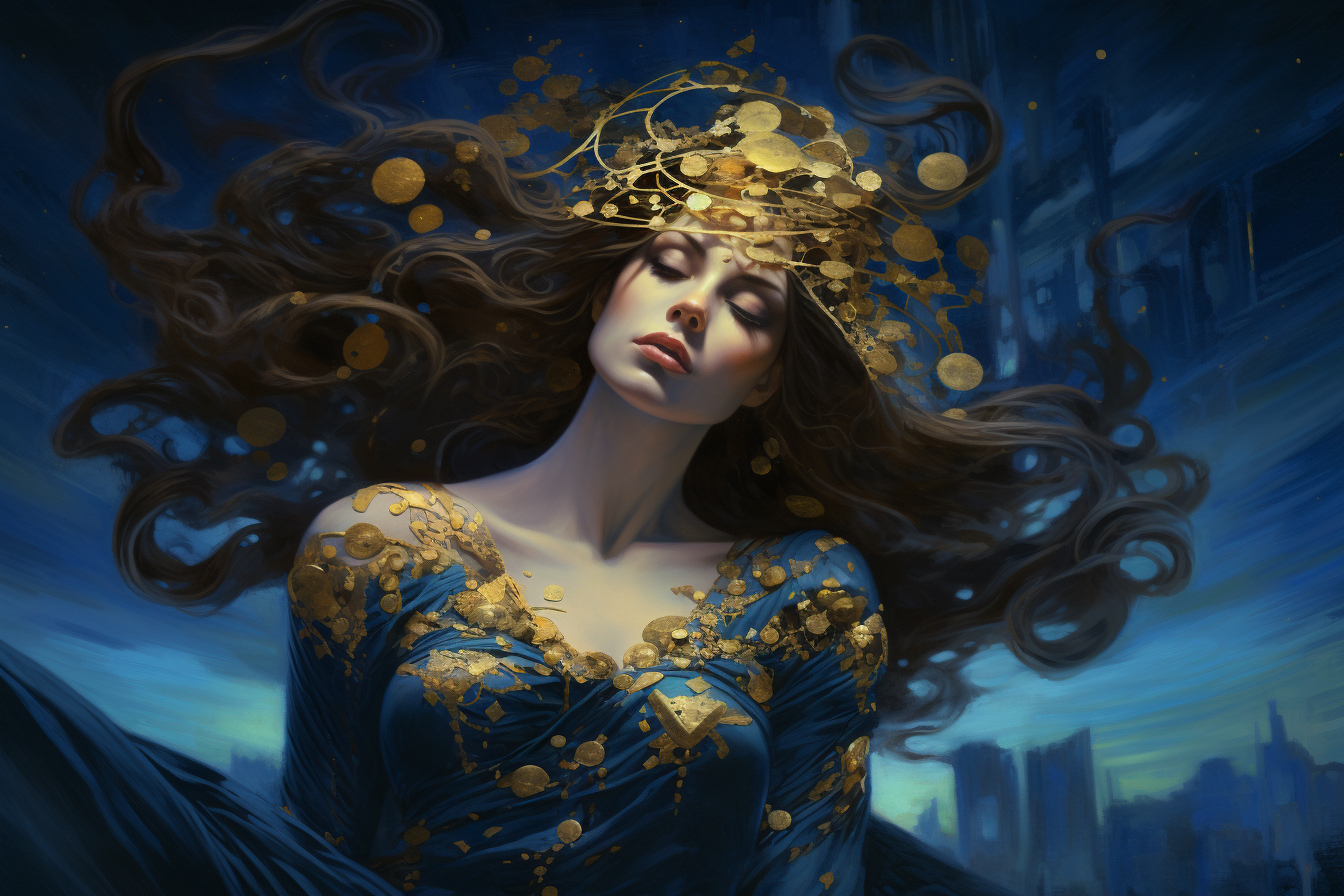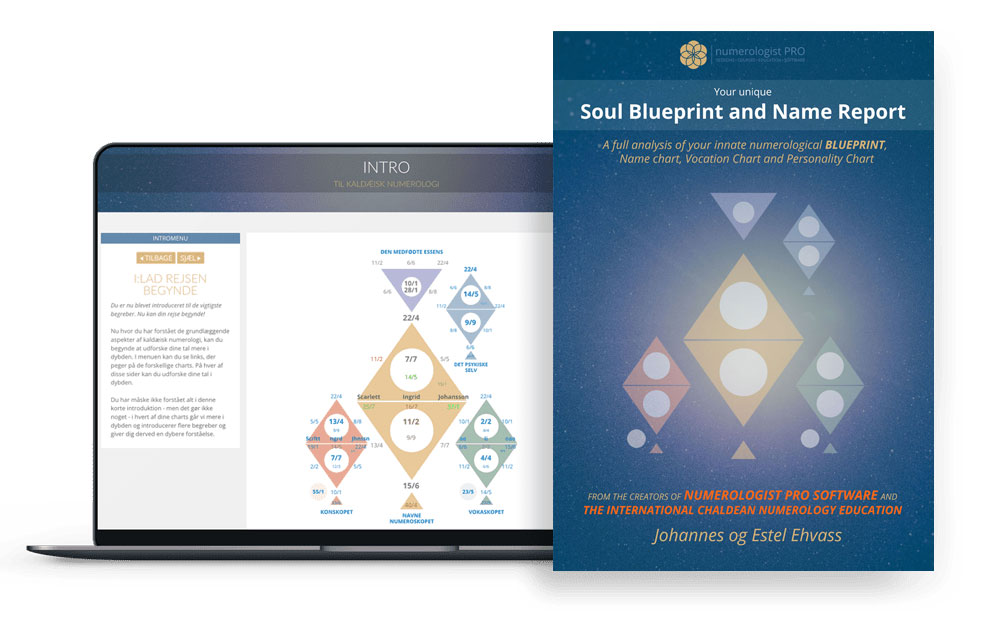Venus in Astrology

Johannes Ehvass
Welcome, dear reader! In this series of articles, we delve into the fascinating realm of astrology and its emphasis on the heavenly bodies. Each heavenly body, replete with its own attributes and mythic tales, significantly influences our personalities, destinies, and the subtle web of connections in our lives. As we explore these celestial bodies, we will uncover the enduring insights and intricate details that make astrology an intriguing and enduring field. Join me on this journey to discover the mysteries and allure of the planets.
Venus: The Celestial Emblem of Love and Beauty
Astronomical Significance

Venus, often referred to as Earth’s ‘sister planet’, boasts a unique position within our solar system. As the second planet from the Sun, it is often visible to the naked eye from Earth. Its radiant presence has fascinated astronomers, poets, and artists alike.
The intrinsic brightness of Venus is largely due to its thick atmosphere of carbon dioxide, which effectively reflects the Sun’s light. But what truly distinguishes Venus in the celestial realm is its dual role as both the “Morning Star” and “Evening Star”. This dual nature is a result of its orbit. At times, Venus rises just before the Sun and at others, it sets just after the Sun, gracing both dawn and dusk with its luminous beauty.
From an astronomical perspective, the orbit of Venus is the most nearly circular of that of any planet, with an eccentricity of less than 1%. This nearly perfect orbit creates consistency in its appearance and position, reinforcing its symbolic associations with harmony and balance.
Symbolic Representations
The luminous presence of Venus in the sky has been an object of admiration for millennia. Across cultures and epochs, it has symbolized love, beauty, art, and harmony. This is not merely an astrological or mythological sentiment but one rooted deeply in human experience. The predictable yet mysterious cycles of Venus, as it weaves in and out of view, mirror the ebb and flow of love and beauty in our lives.
In Roman mythology, Venus was the goddess of love, beauty, desire, and fertility. The Romans held her in such esteem that they claimed her as an ancestor. According to mythology, she was born from the sea foam and reached the shore by floating on a shell, a scene famously depicted in Botticelli’s painting “The Birth of Venus”.
Similarly, in Greek lore, Venus is known as Aphrodite, the goddess of love and beauty. Tales of her romances, allure, and connections with mortals and gods alike have been passed down through generations, further embedding her significance in the collective human psyche.
These cultural and historical interpretations are not restricted to Western civilization alone. Civilizations around the world have observed Venus and have woven stories around its captivating brightness. Its unwavering brilliance in the night sky has served as a beacon, providing both literal and figurative light during the darkest hours, solidifying its status as a symbol of hope, beauty, and love.
Venus in Astrological History
Long before modern astronomy provided insights into the planets, ancient cultures observed the skies and tracked the movements of celestial bodies, including Venus. Its consistent brightness made it a prominent feature in ancient astrological practices.
In Babylonian astrology, Venus was associated with several major deities, most notably Ishtar, the goddess of love and war. This duality, of love and conflict, hints at the intricate nature of relationships, an aspect that modern astrologers still attribute to Venus.
The Mayans, known for their advanced astronomy, also held Venus in high regard. They recognized its cycles and believed that the movements of Venus were related to events on Earth, particularly those concerning leaders and warfare.
Over time, as astrology evolved, the significance of Venus shifted and expanded, but its core attributes remained. In contemporary Western astrology, Venus rules both Taurus and Libra, representing a blend of earthly desires and harmonious relationships.
The planet’s role in ancient astrological practices, whether in determining the fate of kings in Babylon or predicting periods of harmony in ancient Greece, speaks volumes about its enduring significance. It has, and continues to be, a celestial emblem of the human desire for love, beauty, and connection.
In sum, Venus, in its astronomical splendor and symbolic depth, offers a multidimensional exploration. From its radiant presence in the sky to its profound impact on art, mythology, and astrology, Venus continues to enchant, inspire, and guide humanity.
Venus in Major Astrological Traditions
Western Astrology
In the realm of Western Astrology, Venus stands as a beacon of love, beauty, harmony, and values. This glowing planet governs our interpersonal relationships, and its placement in one’s natal chart provides insights into how an individual expresses affection, what they cherish in relationships, and what they find aesthetically appealing.
Additionally, Venus is intimately linked with the principle of attraction. Not just in romantic pursuits, but in drawing to oneself what is desired. Whether it’s material, as in wealth, or immaterial, such as joy and beauty, Venus’ influence is palpable.
Interestingly, Venus also presides over the zodiac signs of Taurus and Libra. While Taurus underscores Venus’s earthy, sensual nature focusing on physical pleasures and material possessions, Libra highlights the planet’s affinity for balance, harmony, and partnership.
Vedic (Indian) Astrology
Vedic Astrology, also known as Jyotish, offers a slightly different perspective on Venus, known as ‘Shukra’ in Sanskrit. Shukra was a revered sage and teacher to the demons and the author of an important Sanskrit work on astrology. In this tradition, Venus or Shukra is considered the benefactor of demons and is the teacher of the art of living, including all forms of art, love-making, and music.
Within a Vedic natal chart, Venus provides insights into one’s capacity for love, marriage, devotion, and how one approaches pleasures and luxuries in life. The concept of beauty in Vedic Astrology is multifaceted; it’s not just physical but also pertains to the soul’s beauty and its karmic journey.
Moreover, Venus’s association with luxury, prosperity, and refinement highlights its significance in determining one’s material successes and the comforts they enjoy. Its placement can indicate a penchant for arts, music, and all things beautiful.
Chinese Astrology
While Venus isn’t central to Chinese Astrology in the way that the moon or Jupiter might be, its influence isn’t entirely absent. In Chinese cosmology, Venus is associated with the metal element, which symbolizes righteousness, purity, and clarity. Given the planet’s brilliant appearance in the sky, this association with metal’s clean, sharp nature seems fitting.
In certain interpretations, Venus is also connected with the Yin energy, representing receptiveness, passivity, and femininity. This is in harmony with Venus’s widespread associations with beauty, allure, and attraction across various cultures and astrological traditions.
Mayan, Egyptian, and Other Traditions
Many ancient civilizations have paid homage to Venus’s beauty and influence. The Mayans, known for their intricate calendar systems, had a special Venus cycle, where they tracked its appearances as both the morning star and evening star. They believed Venus was linked to specific events on Earth, particularly concerning leadership and warfare.
For the ancient Egyptians, Venus was associated with two major deities: Isis, the goddess of motherhood, magic, and fertility; and Hathor, the goddess of music, dance, and fertility. These associations again underscore Venus’s universal themes of love, beauty, and creation.
Across these diverse traditions, while the stories and interpretations may differ, a common thread remains. Venus, in all its celestial glory, has always been a symbol of the innate human desire for connection, beauty, and love.
Venusian Influence Through the Zodiac
Venus in Aries to Venus in Pisces
Understanding Venus’s transit through each of the zodiac signs illuminates the various ways love, beauty, and values can manifest in our lives. This planet’s influence, when combined with the distinct energies of each zodiac sign, creates a rich tapestry of relational and aesthetic expression.
Venus in Aries
When Venus graces fiery Aries, love becomes bold, passionate, and adventurous. Individuals with this placement tend to pursue their desires ardently, with a contagious zest for life. They’re drawn to spontaneous expressions of affection and can be quite impulsive in love, jumping into new relationships with enthusiasm.
Venus in Taurus
In its domicile, Venus in Taurus relishes in sensuality and stability. Those with this placement value consistency in relationships and are deeply loyal. They have an innate appreciation for the finer things in life and often have a keen aesthetic sense, finding beauty in the tangible, material world.
Venus in Gemini
Curiosity and versatility define Venus in Gemini. Communication becomes a primary love language, with these individuals enjoying stimulating conversations and intellectual rapport in their relationships. They’re often drawn to varied experiences in love and can be quite playful and flirtatious.
Venus in Cancer
With Venus in the nurturing sign of Cancer, love is expressed through care, protection, and emotional depth. There’s a yearning for deep emotional bonds and security in relationships. Home and family become central themes, with these individuals often creating a cozy, loving environment for their loved ones.
Venus in Leo
Exuberance and grandeur characterize Venus in Leo. Love is a grand performance, filled with passion, drama, and flair. Individuals with this placement crave admiration and often enjoy lavish displays of affection. They’re generous in love and seek partners who appreciate their radiant charisma.
Venus in Virgo
In detail-oriented Virgo, Venus becomes discerning and service-oriented. Love is often shown through acts of service, care, and attention to the little things. These individuals value perfection and often seek to improve and refine their relationships, striving for an ideal love.
Venus in Libra
Another sign where Venus feels at home, Libra accentuates the planet’s qualities of harmony, balance, and partnership. Relationships become central, with a focus on mutual respect, fairness, and diplomacy. Aesthetics are also emphasized, with a keen appreciation for beauty and art.
Venus in Scorpio
Intense and transformative, Venus in Scorpio dives deep into the realms of passion and intimacy. These individuals seek transformative relationships, marked by deep emotional bonds, passion, and sometimes, power dynamics. There’s an allure and magnetism that’s hard to resist.
Venus in Sagittarius
The adventurer of the zodiac, Venus in Sagittarius seeks love that expands horizons. There’s a love for exploration, whether that’s through travel, philosophy, or diverse experiences. Relationships are marked by freedom, growth, and a quest for higher understanding.
Venus in Capricorn
Grounded and practical, Venus in Capricorn values stability, commitment, and tradition in relationships. There’s an emphasis on building lasting bonds, often with an eye on the long term. These individuals may be cautious in love, but once committed, they’re unwaveringly loyal.
Venus in Aquarius
Unconventional and forward-thinking, Venus in Aquarius values independence and intellectual rapport. Relationships are often marked by friendship, mutual respect, and shared ideals. There’s a love for the unconventional, with these individuals often challenging traditional notions of love and relationships.
Venus in Pisces
Romantic and dreamy, Venus in Pisces seeks a transcendent kind of love. There’s a desire for union, often blurring the boundaries between self and other. These individuals are compassionate, empathetic, and often attract partners through their intuitive and healing nature.
Through its journey across the zodiac, Venus paints a vivid picture of the myriad ways we seek connection, beauty, and meaning in our lives. Each sign offers a unique lens, broadening our understanding of love’s vast and varied landscape.
Venus in Houses and Aspects
Venusian Houses
Within the context of a birth chart, the houses reflect distinct areas of life. Venus’s placement in a particular house illuminates the realm in which we seek harmony, beauty, and connection. It tells a story of how and where we find pleasure, form relationships, and appreciate beauty.
Venus in the 1st House
When Venus graces the 1st House, it blesses the individual with charm, beauty, and a magnetic personality. Their approach to life is harmonious, and they naturally attract others with their pleasant demeanor and aesthetic sense.
Venus in the 2nd House
In the house of personal resources and values, Venus underscores an appreciation for luxury and material comfort. Individuals with this placement often have a knack for accumulating wealth and are drawn to high-quality, beautiful possessions.
Venus in the 3rd House
Communication becomes infused with grace and charm. These individuals are eloquent speakers and writers, often expressing themselves in pleasing, artistic ways. Relationships with siblings and neighbors can also be highlighted.
Venus in the 4th House
Home and family are central for those with Venus in the 4th House. They seek harmony and beauty in their domestic environment and often have strong emotional bonds with their family. Their homes are usually aesthetically pleasing and comforting.
Venus in the 5th House
Love affairs, creativity, and leisure are emphasized. Individuals with this placement find joy in artistic pursuits, romantic escapades, and all forms of pleasure and entertainment. They may also have a strong connection with children.
Venus in the 6th House
Daily routines, work, and health become areas where these individuals seek harmony and beauty. They might enjoy pleasant work environments and can have harmonious relationships with coworkers. There’s also an appreciation for well-being and aesthetics in daily life.
Venus in the 7th House
In the house of partnerships, Venus emphasizes the importance of harmonious relationships. These individuals are drawn to partnerships, both business and romantic, where mutual respect and affection are central.
Venus in the 8th House
Deep, transformative relationships and shared resources are highlighted. Individuals with this placement are drawn to the mysteries of intimacy and might experience both the highs and lows of passionate relationships. They may also benefit from shared finances or inheritances.
Venus in the 9th House
An appreciation for foreign cultures, philosophies, and higher learning is evident. These individuals might be drawn to romantic adventures abroad or find beauty in exploring various philosophies and beliefs.
Venus in the 10th House
Public image and career become areas where these individuals seek recognition and appreciation. They might pursue careers in the arts or any field where aesthetics and interpersonal relationships are valued. Their public persona is often charming and attractive.
Venus in the 11th House
Friendships and group associations are emphasized. These individuals value harmonious social circles and often play the role of peacemaker in groups. Their aspirations and dreams are often connected to creating beauty and harmony in the world.
Venus in the 12th House
There’s a deep, introspective approach to love and beauty. These individuals might have secret love affairs or an attraction to the mystical side of relationships. They find beauty in the intangible and often have a rich inner life.
Aspects with Other Planets
Venus’s interactions with other planets in the natal chart add layers of complexity and depth to its expression. These aspects can either enhance or challenge Venus’s natural inclinations, adding nuance to how we relate and what we value.
Venus conjunct Mars
This conjunction infuses Venusian areas of life with passion, assertiveness, and dynamism. Love lives can be marked by intense attractions and spirited pursuits.
Venus square Jupiter
While this aspect can amplify the desire for pleasure and luxury, it can also lead to excesses. Individuals might grapple with overindulgence or have grand expectations in love.
Venus trine Saturn
This harmonious aspect brings longevity and stability to relationships. Individuals value commitment and might approach love with maturity and patience.
Venus sextile Neptune
There’s a dreamy, romantic quality to this aspect. Individuals are in tune with the subtleties of love and might have an idealized view of relationships. Artistic inclinations are also enhanced.
In conclusion, Venus’s placement and aspects within the birth chart weave a detailed story of our values, aesthetic inclinations, and relational dynamics. By understanding its nuances, we can navigate our relationships and desires with greater insight and grace.

Johannes & Estel: Renowned authorities in Numerology, Astrology, and the esoteric arts. As the founders of Scandinavia's premier Numerology school, we're delighted to share our insights through this curated series on astrology. Dive in and discover the stars.
The Worlds Most Advanced Numerology Report

Your birthdate reveals your unique life purpose, potentials, talents, weaknesses, and karma in this life.
Your names show what you attract into your life regarding your career, relationships, happiness, money, and success.
GET THE REPORT HERE
Introduction to Astrology
The history of Astrology
Moving beyond deterministic astrology
Foundation of Astrology: Planets, Signs and Houses
Astrology and the Holographic Universe
The Holographic Universe
The Human Psyche as a Mirror to The Solar System
The Human Body as a Mirror to The Star Signs
Astrology Background
Egyptian Astrology
Mayan Astrology
Chinese Astrology
Indian Astrology - Jyotish
Celtic Astrology
Tibetan Astrology
Mesopotamian Astrology
Early Mesopotamian Astrology: The Dawn of Celestial Divination
Enuma Anu Enlil: The Epicenter of Babylonian Celestial Omen Interpretation
Babylonian and Chaldean Astrology
Babylonian and Chaldean Astrology
Chaldean influence and evolution
Chaldean Wisdom: Safeguarding and Transmitting Astrological Knowledge
Hellenistic Astrology
Hellenistic Astrology background
Claudius Ptolemy and Tetrabiblos
Vettius Valens
Dorotheus of Sidon
Persian Astrology
Persian Astrology background
Sassanian Astrology
Late Antiquity and The Transition Period
Late Antiquity and The Transition Period
Hellenistic to Islamic Transition: The Torchbearers of Astrological Wisdom
Islamic Golden Age
Arabian Astrology Background
Arabian Astrology Contributions
Medieval Astrology
Introduction: The Medieval Cosmos
Monastic Preservers: Astrological Knowledge in the Dark Ages
Astrology in Medieval Medicine
Kings, Queens, and Constellations: Astrology in the Medieval Court
The Church and the Stars: A Contentious Relationship
Universities and Scholastic Pursuits: Academic Astrology
Astronomy & Astrology: Tools of the Trade
Medieval Astrological Houses and the Synthesis of Traditions
Transition to the Renaissance: Humanism and the Celestial Arts
Reflections: Medieval Astrology's Echoes in Modern Practice
Astrological Art of the Middle Ages
Famous Medieval Astrologers
Medieval Astrological Texts
Renaissance Astrology
Renaissance Humanism and Astrology
Scientific Advancements and Astrology
The Social Fabric: Astrology in Everyday Renaissance Life
Court Astrologers of the Renaissance
Controversies and Conflicts: Astrology Under Scrutiny
Renaissance Texts and Authors: Continuation of a Tradition
Astrology and Art: Celestial Imagery in the Renaissance
Renaissance Astrological Practices: Evolutions and Innovations
End of the Renaissance: The Gradual Decline of Astrological Influence
Renaissance Astrology's Echo in the Modern World
Enlightenment Astrology
Introduction: The Enlightenment and Astrology
Challenging the Stars: Astrology's Critics during the Enlightenment
Astrology and the New World
Astrology in the 19th Century
The Dawn of Psychological Astrology
Astrology in the 20th Century: A Modern Renaissance
Astrological Associations and Schools
Modern Controversies and Astrology
Astrology and Popular Culture
Astrology and Technology
Current Trends and Future Directions in Astrology
Conclusion: Reflecting on Astrology's Evolution
The Planet Significances
The Sun in Astrology
The Moon in Astrology
Mercury in Astrology
Venus in Astrology
Mars in Astrology
Jupiter in Astrology
Saturn in Astrology
Uranus in Astrology
Neptune in Astrology
Pluto in Astrology
Chiron in Astrology
Black Moon Lilith in Astrology
Pars Fortuna in Astrology
Ceres in Astrology
Houses in Astrology
Introduction to Astrological Houses
The Angular Houses
The Succedent Houses
The Cadent Houses
The 1st House
The 2nd House
The 3rd House
The 4th House
The 5th House
The 6th House
The 7th House
The 8th House
The 9th House
The 10th House
The 11th House
The 12th House
Interaction Between Houses
Derived Houses, House Rulers, and Interceptions
Conclusion: Synthesizing House Knowledge
All Materials © 2023 & 2024 Numerologist PRO
Terms of Service: Information provided by Numerologist PRO and/or from this web site is not intended as advice (medical, psychological, financial or other), nor is it intended to replace your work with a qualified professional (medical or otherwise). You should maintain your relationship with your providers and consider the services of this site as informational only. Any information, stories, examples, or testimonials presented on this website do not constitute a warranty, guarantee, or prediction regarding the outcome of an individual. This web site is a sharing of knowledge and information of numerology/energy work based on the experiences of Numerologist PRO. You are encouraged to make your own decisions based on your own research and inner guidance. By booking and receiving services, you agree to fully release and hold harmless Numerologist PRO and all it's affiliated numerologists from and against any liability or claim that may arise out of or in connection with their service(s).
Numerologist PRO © 2021

CONTACT
numerologist@numerologistpro.com
LIKE US, and get free numerology tools, info about your personal numbers, best business dates of the year - and more!
YOUR FREE NUMEROSCOPE CHART
Enter your name and email below and get access to our free online numerology chart tool.